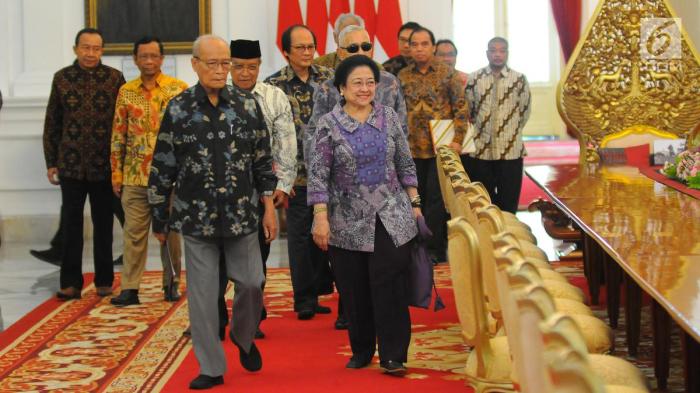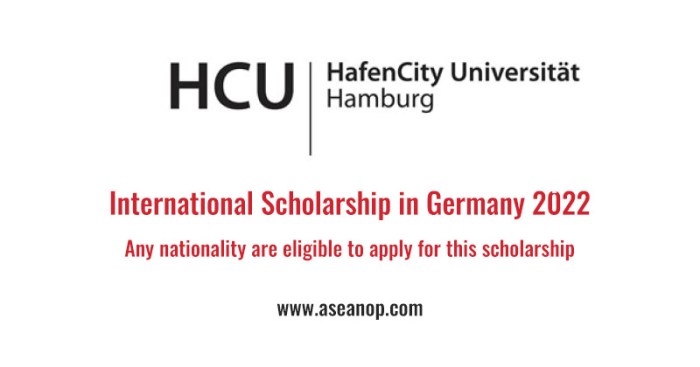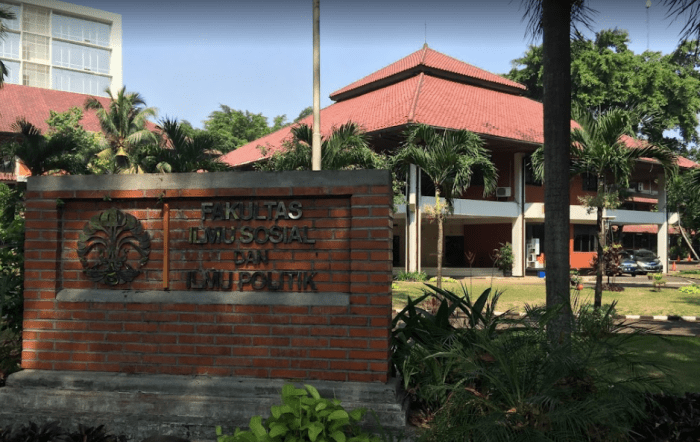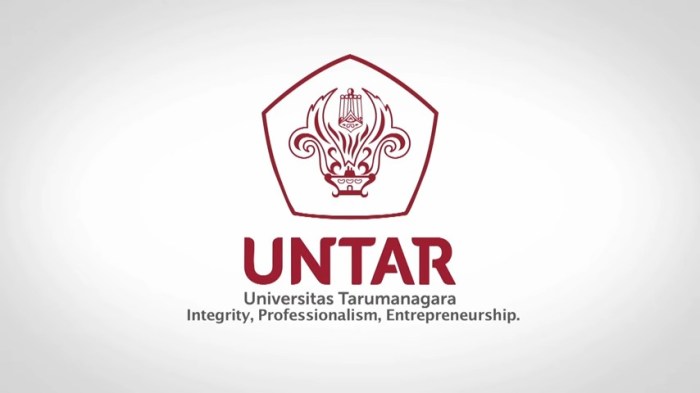Biografi singkat bj habibie dalam bahasa inggris – BJ Habibie, seorang tokoh berpengaruh di Indonesia, dikenal sebagai Bapak Teknologi Indonesia dan Presiden Republik Indonesia ke-3. Kisahnya menorehkan jejak yang kuat dalam sejarah Indonesia, menelusuri perjalanan inspiratif dari seorang ahli teknik penerbangan hingga pemimpin negara.
Lahir di Pare-pare, Sulawesi Selatan, Habibie dikenal sebagai sosok cerdas yang menorehkan prestasi gemilang dalam bidang pendidikan dan karier. Ia berhasil menamatkan pendidikan di Jerman dan kemudian berkontribusi signifikan dalam pengembangan industri penerbangan di negara tersebut. Perjalanan kariernya yang cemerlang di bidang teknik penerbangan berlanjut dengan keterlibatannya dalam dunia politik Indonesia.
Early Life and Education
BJ Habibie, affectionately known as “Eyang Habibie,” was a prominent Indonesian figure who played a pivotal role in the country’s technological advancements and political landscape. His journey began in a humble town in the heart of Indonesia, shaping his early life and education.
Birthplace and Family Background
Born on June 25, 1936, in Parepare, South Sulawesi, Habibie was the youngest of eight children. His father, Alwi Abdul Jalil Habibie, was a respected civil servant, while his mother, R.A. Tuti Marini Puspowardojo, hailed from a prominent Javanese family. His family’s background instilled in him a strong sense of patriotism and a deep appreciation for education.
Early Education
Habibie’s early education was marked by his exceptional academic abilities. He attended elementary school in Parepare, followed by his secondary education at a prestigious school in Bandung, West Java. His intellectual prowess was evident from a young age, leading him to pursue higher education at the Bandung Institute of Technology (ITB).
University Studies and Achievements
Habibie’s thirst for knowledge led him to specialize in aeronautical engineering at ITB. He graduated with honors in 1955 and subsequently earned a scholarship to study in Germany. At the Technical University of Aachen, he earned a doctorate in aeronautical engineering in 1965, specializing in lightweight structures and aircraft design.
Significant Achievements During Student Years
During his time at the Technical University of Aachen, Habibie’s brilliance shone through. His doctoral dissertation, focusing on the application of finite element analysis in aircraft design, was groundbreaking. He also received several awards for his outstanding academic performance and contributions to the field of aeronautical engineering.
Career in Aerospace Engineering
Habibie’s journey in aerospace engineering began in Germany, where he pursued his studies and later embarked on a remarkable career. He gained invaluable experience at the renowned German Aerospace Center (DLR), contributing significantly to the advancement of aerospace technology.
Contributions to Aerospace Engineering
Habibie’s contributions to aerospace engineering were multifaceted and groundbreaking. His expertise in structural analysis, particularly in the field of lightweight construction, played a pivotal role in the development of innovative aircraft designs. His research and inventions focused on enhancing aircraft performance, safety, and efficiency.
- Habibie’s pioneering work on crack propagation theory revolutionized aircraft safety. He developed a mathematical model to predict and prevent fatigue failure in aircraft structures, ensuring greater reliability and reducing the risk of catastrophic accidents.
- He also made significant contributions to the development of lightweight materials and advanced composite structures, leading to the creation of more efficient and fuel-saving aircraft designs. His research on the use of fiber-reinforced plastics in aircraft construction significantly reduced aircraft weight, leading to improved fuel efficiency and reduced emissions.
- Habibie’s expertise in structural optimization and analysis helped to improve the aerodynamic performance of aircraft, enabling them to fly faster, farther, and with greater efficiency.
Role in the Development of the German Airbus, Biografi singkat bj habibie dalam bahasa inggris
Habibie played a crucial role in the development of the German Airbus, a project that revolutionized commercial aviation. He was instrumental in the design and engineering of the aircraft’s fuselage, ensuring its structural integrity and performance.
Habibie’s contributions to the Airbus project were recognized internationally, solidifying his reputation as a leading aerospace engineer. His expertise in lightweight construction and structural analysis proved invaluable in the development of this iconic aircraft, which became a symbol of technological innovation and progress.
Political Career and Presidency
Habibie’s political journey began with his appointment as Minister of Research and Technology in 1978 by President Suharto. This position allowed him to leverage his expertise in aerospace engineering and technology development for the benefit of Indonesia. He spearheaded the development of the Indonesian aircraft industry, culminating in the creation of the Nurtanio aircraft factory and the production of the first Indonesian-made aircraft, the N-250 Gatotkaca.
Vice President Under Suharto
Habibie’s expertise and leadership were recognized by President Suharto, who appointed him as Vice President in 1993. During his tenure as Vice President, Habibie continued to champion technological advancements and played a crucial role in promoting economic development. He also became known for his diplomatic skills, representing Indonesia in international forums.
Presidency and Challenges
In 1998, following the Asian financial crisis and widespread political unrest, President Suharto resigned from his position. Habibie, as the Vice President, assumed the presidency and faced the daunting task of steering Indonesia through a period of profound political and economic turmoil. His presidency was marked by a series of key challenges:
- Economic Crisis: The Asian financial crisis had severely impacted Indonesia’s economy, leading to currency devaluation, inflation, and unemployment. Habibie’s government implemented economic reforms aimed at stabilizing the economy and restoring investor confidence.
- Political Reform: The political landscape was in a state of flux following the fall of Suharto’s regime. Habibie initiated a process of political reform, including the establishment of a new constitution and the holding of free and fair elections. He also oversaw the transition to a more democratic system of governance.
- Social Unrest: The country was grappling with widespread social unrest and ethnic tensions. Habibie’s government worked to address these issues by promoting national reconciliation and fostering dialogue between different communities.
- East Timor Independence: One of the most significant challenges Habibie faced was the issue of East Timor’s independence. Following a referendum in 1999, the majority of East Timorese people voted for independence. Habibie’s government, although initially reluctant, eventually accepted the results and facilitated the transition to independence.
Legacy and Impact
Habibie’s legacy extends far beyond his technical prowess. He was a pivotal figure in Indonesia’s transition to democracy and played a significant role in shaping the country’s technological landscape. His impact continues to be felt today, inspiring future generations of Indonesian leaders and innovators.
Contributions to Democracy and Development
Habibie’s commitment to democracy was evident in his actions during the 1998 political crisis. Following Suharto’s resignation, he became President and ushered in a new era of political reform. He lifted restrictions on freedom of speech and assembly, allowing for a more open and democratic society. Habibie also implemented crucial reforms that strengthened democratic institutions, such as the establishment of an independent judiciary and a free press.
Transition to a More Democratic System
Habibie’s role in the transition to a more democratic system was crucial. He facilitated the formation of a new constitution that enshrined democratic principles and rights. This marked a significant shift from the authoritarian regime that had ruled Indonesia for decades. Habibie’s courage and vision in embracing democratic values paved the way for a more inclusive and representative government.
Influence on Indonesian Aerospace Industry and Technology
Habibie’s passion for aerospace engineering led him to establish the Indonesian Aerospace (PT Dirgantara Indonesia) in 1976. This company played a vital role in developing Indonesia’s aerospace industry, contributing to the production of aircraft, satellites, and other advanced technologies. Habibie’s leadership and vision spurred innovation and technological advancements in the country, putting Indonesia on the map as a player in the global aerospace sector.
Personal Life and Interests

Habibie’s personal life was deeply intertwined with his professional journey. He married Hasri Ainun Besari in 1962, a woman who was not only his lifelong partner but also his closest confidante and a source of unwavering support. They shared a deep bond, and Ainun played a crucial role in Habibie’s life, providing him with emotional stability and encouragement throughout his career. Their love story is a testament to the enduring power of companionship and mutual respect.
Family Life and Relationships
Habibie’s family life was a source of immense joy and strength. He and Ainun had two sons, Ilham Akbar Habibie and Thareq Kemal Habibie. His family was a constant source of inspiration and grounding, providing him with a sense of belonging and purpose beyond the realm of politics and engineering. He often spoke about the importance of family values and the role they played in shaping his character. His love for his family was evident in his actions and words, and he cherished the time he spent with them.
Hobbies and Interests
Beyond his professional pursuits, Habibie had a diverse range of interests. He was an avid reader, particularly drawn to books on history, philosophy, and literature. He also had a deep appreciation for music, especially classical music, and enjoyed playing the piano in his leisure time. His love for music extended to traditional Indonesian music, and he was known to enjoy listening to gamelan performances.
Notable Anecdotes
One notable anecdote that reveals Habibie’s character is his unwavering commitment to his principles. During his time as President, he faced immense pressure to compromise his ideals, but he remained steadfast in his beliefs. He believed in transparency and accountability, and he refused to succumb to political pressures. This commitment to his principles earned him respect and admiration from many.
Another anecdote that showcases his personality is his genuine warmth and humility. Despite his position of power, he was known for his approachable demeanor and his willingness to engage with people from all walks of life. He had a natural ability to connect with people on a personal level, and his kindness and empathy were evident in his interactions.
Honors and Recognition
Habibie’s exceptional contributions to science, technology, and leadership earned him numerous prestigious awards and recognitions throughout his life. These accolades not only celebrated his individual achievements but also highlighted the significant impact he made on Indonesia and the global community.
Major Awards and Honors
- Doctor Honoris Causa from various universities, including the University of Indonesia, Bandung Institute of Technology, and the University of Twente in the Netherlands. These honorary doctorates recognized his exceptional academic achievements and contributions to engineering and aerospace science.
- The Bintang Mahaputra, Indonesia’s highest civilian honor, awarded to him in 2000. This award acknowledged his significant role in Indonesia’s development and his unwavering dedication to the nation.
- The Order of Merit of the Federal Republic of Germany, one of Germany’s highest civilian awards, bestowed upon him in 2008. This honor recognized his contributions to German-Indonesian relations and his role in promoting scientific and technological cooperation between the two countries.
- The Lifetime Achievement Award from the Indonesian Aerospace Society in 2010. This award celebrated his pioneering work in the field of aerospace engineering and his role in establishing Indonesia’s aerospace industry.
- The Ramon Magsaysay Award for Public Service in 2011. This prestigious award, often considered the Asian Nobel Prize, recognized his exceptional leadership and dedication to public service, particularly in his efforts to develop Indonesia’s technological capabilities.
Significance of Awards and Recognitions
These awards and recognitions serve as a testament to Habibie’s exceptional achievements and contributions in various fields. They highlight his role as a visionary leader, a skilled engineer, and a dedicated public servant.
The honorary doctorates from prestigious universities underscored his academic prowess and his significant contributions to the advancement of engineering and aerospace science. The Bintang Mahaputra, Indonesia’s highest civilian honor, acknowledged his unwavering commitment to Indonesia’s development and his instrumental role in shaping the nation’s future. The Order of Merit of the Federal Republic of Germany reflected his strong ties with Germany and his dedication to fostering international cooperation in science and technology.
The Lifetime Achievement Award from the Indonesian Aerospace Society celebrated his pioneering work in establishing Indonesia’s aerospace industry, while the Ramon Magsaysay Award for Public Service acknowledged his exceptional leadership and his dedication to public service, particularly in his efforts to develop Indonesia’s technological capabilities.
Reflecting Achievements and Impact
The awards and recognitions Habibie received throughout his life reflected his exceptional achievements and impact. They acknowledged his contributions to Indonesia’s development, his pioneering work in aerospace engineering, and his commitment to public service.
His legacy continues to inspire generations of Indonesians to pursue excellence in science, technology, and leadership. His story serves as a powerful reminder of the transformative power of education, innovation, and a commitment to serving one’s nation.
Quotes and Insights: Biografi Singkat Bj Habibie Dalam Bahasa Inggris
BJ Habibie, a visionary leader and engineer, was known for his insightful pronouncements that reflected his profound understanding of technology, human potential, and the pursuit of progress. His quotes serve as a testament to his character and his enduring legacy. They offer valuable lessons and perspectives that continue to resonate with people across generations.
Key Quotes and Their Significance
Habibie’s quotes are not mere words; they encapsulate his beliefs and aspirations, offering a glimpse into his world view. His words resonate with a sense of optimism, a belief in the power of human ingenuity, and a commitment to pushing the boundaries of what’s possible.
- “Technology is not just about machines; it’s about people. It’s about how we use technology to improve our lives.”
- “We must always strive to be better than yesterday. Progress is not a destination; it’s a journey.”
- “Education is the key to unlocking our potential. It empowers us to think critically, solve problems, and contribute to a better world.”
This quote underscores Habibie’s deep understanding of technology’s impact on society. He recognized that technology is a tool, and its value lies in how it’s used to benefit humanity. He believed in harnessing technology to address challenges and enhance the human condition.
Habibie’s emphasis on continuous improvement and progress is evident in this quote. He believed that progress is an ongoing process, not a static endpoint. This philosophy guided his approach to leadership, innovation, and nation-building.
Habibie’s commitment to education is reflected in this quote. He saw education as the foundation for individual growth and societal advancement. He believed that education equips individuals with the tools they need to navigate the complexities of life and contribute meaningfully to their communities.
Impact of Habibie’s Quotes
Habibie’s quotes have left an enduring impact, inspiring individuals and shaping the discourse on technology, leadership, and societal progress. They serve as reminders of the importance of human potential, the power of innovation, and the need to strive for a better future. His words continue to motivate people to pursue their dreams, embrace challenges, and make a positive difference in the world.
Impact on Indonesian Society

Habibie’s presidency and leadership left an indelible mark on Indonesian society. His tenure was marked by a commitment to democracy, economic liberalization, and technological advancement. He faced significant challenges, including the aftermath of the Asian financial crisis and the need to rebuild trust after the authoritarian rule of his predecessor. His policies and decisions had a profound impact on Indonesia’s trajectory, shaping its political, economic, and social landscape.
Political Reforms and Democratization
Habibie’s legacy is deeply intertwined with the transition to democracy in Indonesia. He courageously initiated political reforms that paved the way for a more open and inclusive society. He lifted restrictions on political parties, allowing for a wider range of political views to be expressed. He also introduced a new constitution that enshrined human rights and democratic principles. This ushered in an era of greater freedom and political participation for Indonesians.
Economic Liberalization and Development
Habibie’s economic policies aimed to foster growth and development. He embraced a more open market approach, encouraging foreign investment and promoting private sector participation in the economy. He implemented reforms to streamline bureaucratic processes and attract foreign capital. These efforts led to a period of economic growth, although the Asian financial crisis presented significant challenges.
Technological Advancement and Innovation
Habibie was a staunch advocate for technological advancement and innovation. He believed that Indonesia needed to embrace technology to compete on the global stage. He established the National Aerospace Agency (LAPAN), which played a key role in developing Indonesia’s aerospace industry. He also supported the development of other technological sectors, including telecommunications and information technology.
Legacy as a Visionary Leader
Habibie’s legacy is one of a visionary leader who sought to modernize and transform Indonesia. He believed in the power of education, technology, and democracy to uplift the nation. He inspired a generation of Indonesians with his commitment to progress and his unwavering belief in the potential of his country. He is remembered as a symbol of hope and a testament to the transformative power of leadership.
International Recognition

Habibie’s contributions to Indonesia’s aerospace industry and his unwavering commitment to democracy earned him widespread international recognition. He was widely respected for his intellect, leadership, and vision, both within Indonesia and on the global stage.
International Awards and Honors
Habibie received numerous prestigious awards and honors throughout his life, acknowledging his significant achievements in science, technology, and politics. These accolades highlighted his contributions to international cooperation and understanding.
- The Order of Merit of the Federal Republic of Germany: This award, bestowed upon him in 1996, acknowledged his significant role in strengthening German-Indonesian relations and fostering technological collaboration.
- The UNESCO Albert Einstein Medal: Awarded in 2001, this prestigious medal recognized Habibie’s outstanding contributions to the advancement of science and peace.
- The United Nations Millennium Development Goals Award: Received in 2005, this award honored Habibie’s leadership in promoting sustainable development and poverty eradication.
Role in Promoting International Cooperation and Understanding
Habibie was a strong advocate for international cooperation and understanding. He believed that collaboration was crucial for addressing global challenges and fostering peace. His efforts in promoting international cooperation were evident in various ways.
- Promoting Technology Transfer: As a leading figure in Indonesia’s aerospace industry, Habibie actively sought to transfer technology and knowledge from developed countries to Indonesia. This facilitated the development of the Indonesian aerospace sector and fostered collaboration with international partners.
- Strengthening Diplomatic Ties: Habibie played a significant role in strengthening Indonesia’s diplomatic relations with various countries. He engaged in high-level dialogues and fostered cooperation in areas of mutual interest, such as trade, investment, and technology.
- Advocating for Peace and Stability: Habibie was a strong advocate for peace and stability in Southeast Asia and the world. He actively participated in regional forums and initiatives aimed at promoting dialogue, resolving conflicts, and fostering cooperation.
Legacy and Lasting Impact
BJ Habibie’s life and career were dedicated to serving Indonesia and making a positive impact on the world. He left behind a legacy that continues to inspire future generations and shape the landscape of aerospace engineering, politics, and society.
Contributions to Aerospace Engineering
Habibie’s contributions to the field of aerospace engineering are remarkable. He is widely recognized as the “father of Indonesian aerospace,” having played a pivotal role in the development of the Indonesian aircraft industry. His expertise and leadership were instrumental in establishing the Indonesian Aerospace (PT Dirgantara Indonesia), a state-owned aerospace manufacturer.
- Habibie’s technical prowess was evident in his groundbreaking work on the design and development of the N-250 Gatotkaca, Indonesia’s first commercial aircraft. This innovative aircraft, a turboprop regional airliner, was a testament to Habibie’s visionary leadership and his commitment to advancing Indonesia’s technological capabilities.
- Beyond the N-250, Habibie’s contributions to aerospace engineering extended to various other projects, including the development of satellites and the establishment of research centers. His unwavering dedication to research and innovation helped to foster a culture of technological advancement in Indonesia.
Political Legacy and Impact on Indonesian Democracy
Habibie’s legacy extends beyond the realm of engineering to the political landscape of Indonesia. As the third president of Indonesia, he played a crucial role in transitioning the country from authoritarian rule to a democratic system.
- Habibie’s commitment to democracy was evident in his decision to implement a series of political reforms, including the introduction of multi-party elections and the establishment of an independent judiciary. These reforms laid the foundation for a more democratic and inclusive Indonesia.
- He also played a significant role in resolving the long-standing conflict in East Timor, leading to the region’s independence through a referendum in 1999. This decision demonstrated his commitment to peace and self-determination, even when it meant relinquishing control over a territory.
Social Impact and Inspiration
Habibie’s impact on Indonesian society was profound. He was admired for his intelligence, his dedication to education, and his unwavering belief in the potential of the Indonesian people.
- Habibie’s emphasis on education was evident in his efforts to promote science and technology in Indonesia. He believed that education was the key to national progress and worked to improve access to quality education for all Indonesians.
- His humility and compassion were evident in his interactions with people from all walks of life. He was known for his approachable nature and his willingness to listen to the concerns of ordinary citizens.
- Habibie’s legacy continues to inspire future generations. He is remembered as a visionary leader, a brilliant engineer, and a true patriot. His story serves as a reminder that with dedication, hard work, and a belief in oneself, anything is possible.
Pemungkas
BJ Habibie meninggalkan warisan yang luar biasa bagi Indonesia. Karya-karyanya dalam teknologi, khususnya di bidang penerbangan, telah membuka jalan bagi kemajuan bangsa. Kepemimpinannya, meskipun singkat, menorehkan momen penting dalam sejarah Indonesia, menandai transisi menuju demokrasi. Kisah hidup Habibie, yang penuh dengan dedikasi, kecerdasan, dan patriotisme, akan terus menginspirasi generasi penerus untuk meraih mimpi dan berkontribusi bagi kemajuan bangsa.






